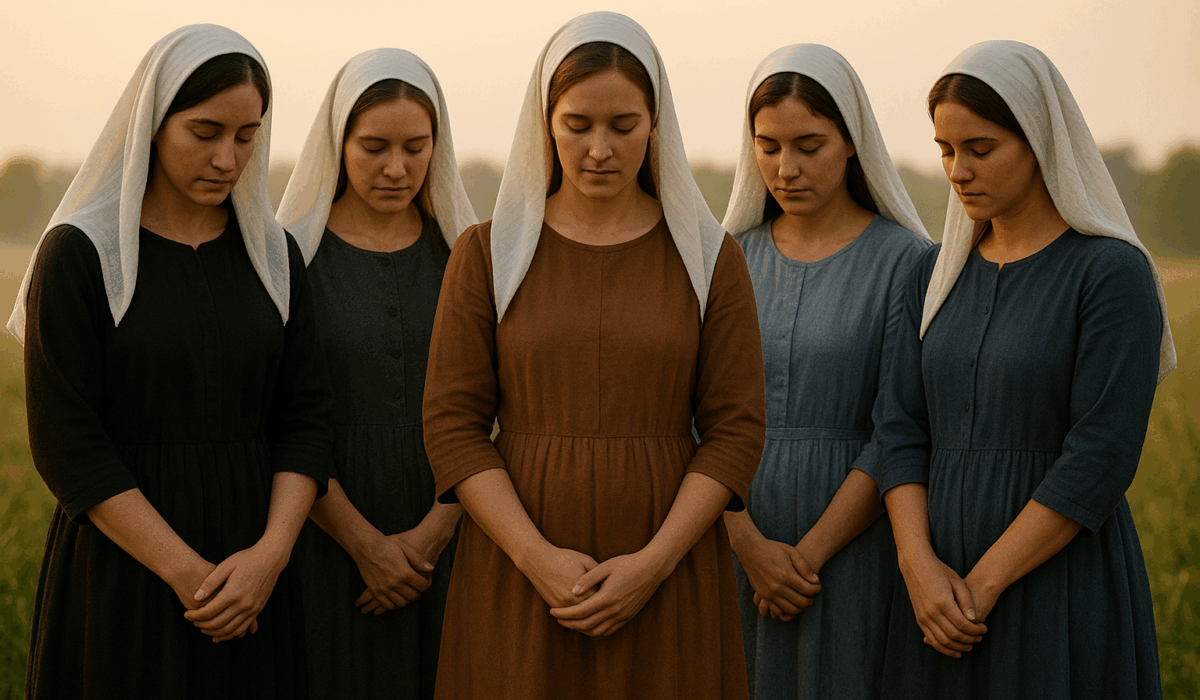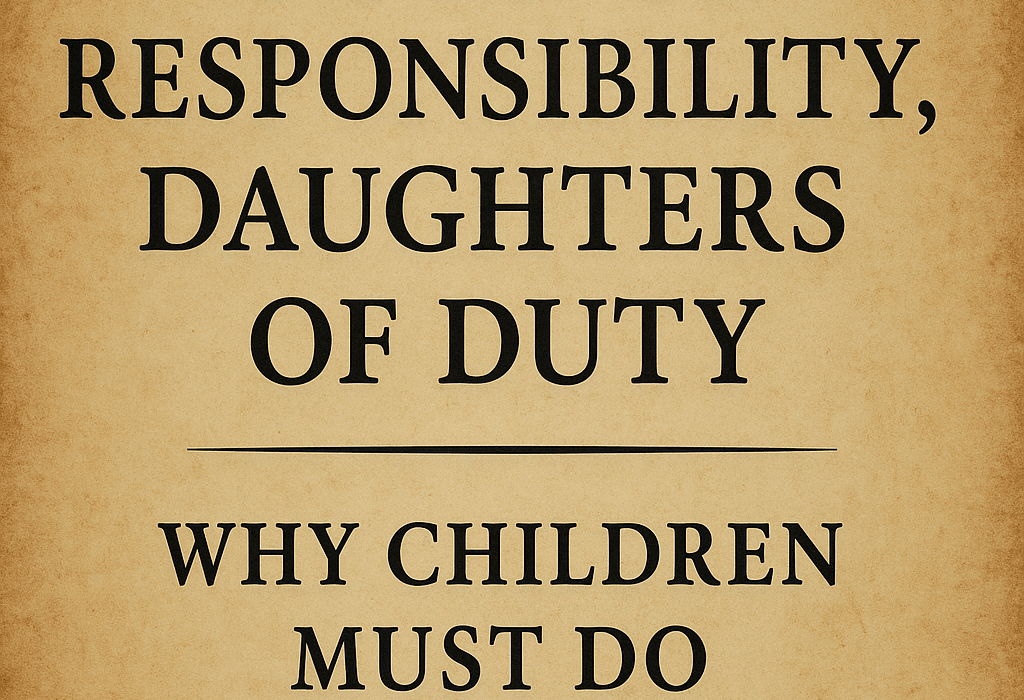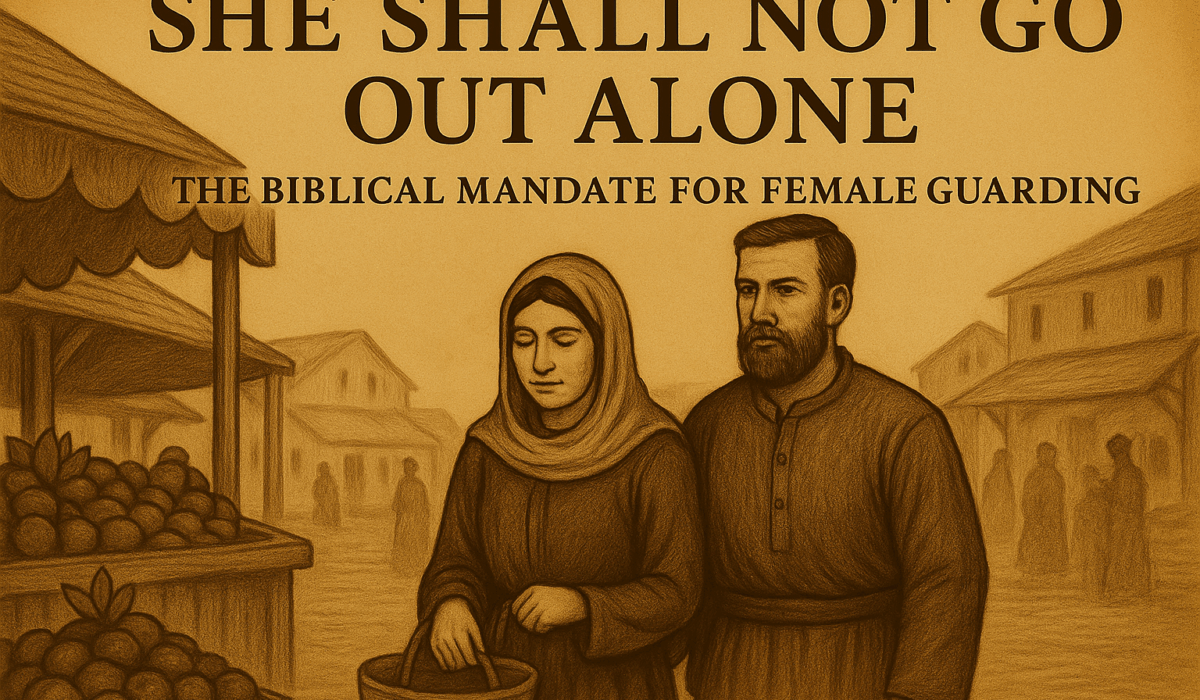It is a beautiful truth that God redeems sinners. He washes the unclean, restores the broken, and welcomes the prodigal. But this truth must be balanced with another: while forgiveness is instant, consequences often linger for a lifetime. The grace of God removes our guilt, but it does not always remove the scars and consequences of our choices. For both men and women, especially in our modern age of rebellion against Biblical order, sin leaves deep and lasting effects.
When Christians wake up to the truth—embracing Biblical patriarchy, godly family order, and the call to dominion—they often do so after years, sometimes decades, of walking in ignorance or willful rebellion. And even after they turn to righteousness, they must live with the fruit of former sins. This is not punishment—it is God’s discipline, the natural outworking of His law.
Let us consider these consequences in greater detail.
I: Broken Foundations: The Haunting Echoes of Upbringing
Many Christians come from homes with no structure, no Biblical order, and no clear vision of God’s purpose for the family. The father was passive or absent altogether. The mother was overbearing or emotionally unstable. The children were raised on television, public schools, and godless philosophies. This chaotic upbringing forms the mental and emotional framework for life.
Even after repentance, Christians must unlearn years or even decades of disorder. Men must discover how to lead, not from instinct, but from scratch. Women must retrain their affections, shifting from independence and emotionalism to submission and nurturing strength. The habits of the flesh do not vanish in an instant. And the deeper the corruption, the longer the detox period. It is an unfortunate truth that childhood trauma, fatherlessness and feminist indoctrination do not disappear simply because one discovers the truth.
II: The Wounds of Fornication and Divorce
The sexual sins of youth or years gone by leave invisible, but often irreversible wounds.
For Women: Promiscuity hardens the heart, confuses the soul, and damages the body. Women who have shared themselves with many men often suffer from emotional numbness, broken trust,depression, loneliness, lack of true connection and deep shame. Even when they marry a godly man later, they struggle to fully bond with him. Their ability to submit is fractured by years of being used and using others. Their reproductive health can also suffer from things like STDs, hormonal imbalance, miscarriages, or infertility. These often result from prior sins, hormonal contraception, medications, vaginal trauma, rape, abuse and other activities not found in a healthy Biblical marriage. Divorce, especially if it includes fornication, adultery or sexual abuse leaves spiritual and emotional trauma that may affect their ability to love, nurture, trust or conceive again.
For Men: Lustful living reshapes the man’s understanding of women, sex, and marriage. He may bring past memories, expectations, or emotional detachment into a godly union. He may carry guilt over children conceived in sin or the pain of abandoned relationships. If he has divorced, he may have legal and financial obligations to another woman and children who no longer honor him. These are chains that rarely break completely.
III: Barren Wombs and Shattered Homes: Physical and Reproductive Consequences
Sin is not just spiritual—it is embodied. It leaves marks on the flesh.
For women, the consequences can be tragic:
Improper nutrition as a child, being overweight as a young woman, even wearing tight pants can lead to permanently lowered hormone levels resulting in thyroid problems, PCOS, Osteoporosis, ovarian cysts and a myriad of other medical related reproductive issues.
Years of contraceptive and prescription drug use damages the womb, hormone levels and reproductive processes.
Multiple sexual partners increase the risk of cervical disease and reproductive complications.
Abortion leaves not only a moral wound, but physical and psychological trauma.
A woman who waits too long to marry, due to career or feminism, may find herself past her childbearing years when she finally repents and embraces her proper place in the Biblical family.
Even those who can still bear children may find it difficult to conceive or carry them to term. This is not a failure of God, but the natural result of years spent outside His design.
For men, consequences often show in diminished strength, infertility, or sexual dysfunction—often due to pornography, masturbation, or fornication. These acts literally rewire the brain and poison the body. Even after turning from them, many men carry the shame and weakness of these actions with them for years.
IV: Divided Loyalties and Mixed Households
The man who repents later in life may be married to a wife who does not share his faith or his newfound patriarchal convictions. His children may already be raised in feminist or secular ideologies. He may try to lead, but his wife resists. He may try to teach, but his children mock him. The home becomes a battlefield, and the patriarch is outnumbered in his own house.
This is the fruit of marrying outside the faith or choosing a spouse based on worldly standards. The man cannot simply erase his past. He must now lead through resistance and live with the pain of a house that was not built on the rock.
In polygynous households, the damage can be multiplied if wives were previously divorced, wounded by sin, or carry feminist assumptions. The patriarch must shepherd them gently, but firmly, knowing that the dysfunctions of their past may take time to heal.
V: Emotional Entanglements and Soul Ties
Many Christians do not realize that sexual intimacy creates soul ties—deep, spiritual connections that linger even after the relationship ends. Women, especially, carry memories, emotions, and guilt from past relationships into their current lives. These can surface in moments of conflict, insecurity, or desire for escape.
Repentant Christians must fight against these ties through prayer, fasting, and renewing the mind. But the residue of past sin clings closely. In marriage, it may cause coldness, suspicion, or recurring temptation. These are the lasting effects of rebellion and sin.
VI: Weakened Witness and Limited Authority
A Christian who has lived much of life in rebellion, even if now walking righteously, often has a compromised witness. The world—and even the church—remembers his past. If he was a coward, a fornicator, a divorced man, or an absent father, his ability to lead and teach may be limited. He may be forgiven by God, but not by men.
Similarly, a woman who has publicly embraced feminism or rebellion, especially if she divorced a good man or defied Biblical teaching. She will struggle to be seen as a model of Biblical womanhood, no matter how sincerely she repents. She may never teach younger women or mentor wives in the way she could have if she had obeyed earlier.
VII: Limited Time and Lost Opportunities
A man who discovers Biblical order at 40, 50, 60 cannot build the same household a 20-year-old can. He has fewer childbearing years left with his wife (or wives), less strength to build an enterprise, and limited time to raise sons into maturity. He may do much, but he will always be catching up.
A woman who repents at 30, 40 may be beyond her childbearing prime. She may deeply desire children, but have no husband. Or, worse, she may have children from a previous sinful relationship, complicating her future prospects. She may desire to serve a godly man, but her history makes her an uncertain foundation for a fruitful household.
VIII: The Hope of Redemption and the Call to Build Anyway
Despite all these consequences, God is not mocked, but He is also merciful. The repentant man or woman is not cast away. They may not reclaim the years the locust has eaten, but they can still plant seeds for a future harvest.
The man with a checkered past may raise up sons who will surpass him.
The barren woman may disciple younger women or adopt and nurture the fatherless.
The broken family may, by God’s grace, become a beacon of healing and order for others.
The latecomer may have less time, but greater fire. And a short life of righteous order is better than a long life of compromise.
Our sins have consequences, but obedience still bears fruit. What we build today can and will echo into eternity!









